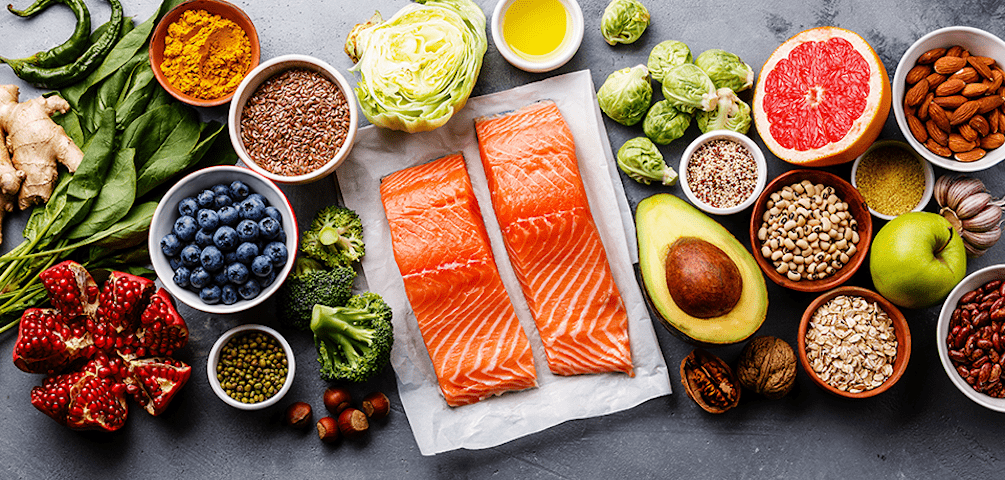Live Vibrantly - January 27, 2019
Six Swaps for a Healthier Diet
Can eating better help you age more gracefully? You bet!
Consider this: Your risk for some of the most prevalent killers—heart disease, cancer and diabetes—can be tied to a poor diet. Providing tips on what to expect from aging, the Mayo Clinic cites “eat a healthy diet” as a recommended step to help address several common health issues many of us face in our later years. While other factors such as family history play a role, take charge of the one factor within your power to control! Choosing more carefully what you eat and drink and how you prepare food is easier than you think.
Chronic diseases threaten longevity. The U.S. Department of Agriculture Dietary Guidelines for Americans suggests consuming less salt, sugar and animal fat, and getting more fiber, vitamins and minerals for better dietary balance. Good nutrition should be a top priority for anyone determined to thrive as they age. Here are six easy swaps to help you follow the USDA’s healthy advice.
- Switch to natural peanut butter (or give almond butter a try). Peanut butter is a great source of protein that has no saturated (animal) fat. But processed brands may contain* as much as two-thirds more sugar than those labeled “100% natural.” Most natural peanut butters have less salt as well, and may come in no-salt varieties.
- Choose olive oil over butter. Scrambling or frying eggs or other foods? Lose most of the saturated fat by giving up butter. Regular butter delivers the kind of fat that clogs arteries and leads to heart disease. Extra-virgin olive oil is flavorful and provides the healthy unsaturated fats your body needs.
- Trade in granola for low-sugar cereal. Yes, the main ingredient in granola is heart-healthy oats. But the high sugar content offsets that benefit. Read the nutrition facts on cereal boxes and make your preference the one with the lowest sugar content per serving. You’ll automatically reduce your sugar intake and condition yourself to crave less of it. A low-sugar cereal with a high proportion of fiber gives you the best of both worlds.
- Go for whole-grain bread and ditch the white bread. This simple habit will nearly triple your fiber intake every time you eat a piece of toast or a sandwich. Increased fiber intake decreases your risk for certain types of cancer.
- Snack on unsalted almonds instead of chips. You’ll gain lots of protein and minerals and lose every bit of that salt that coats potato or corn chips. Some grocers offer flavorful unsalted, roasted almonds in the bulk foods aisle. Pay attention to suggested serving sizes! Almonds and other high-protein nuts pack many calories, and just a handful makes a filling snack.
- Sip water instead of soda pop or just about any other beverage. Water has no calories, no harmful fat, no sugar and just traces of sodium (salt). By contrast, a 16-ounce cola contains 30 grams of sugar. That’s nearly the entire daily allowance of added sugar (36g) recommended for men by the American Heart Association, and more than the RDA for women (24g).
Goodwin Living At Home can help you improve your daily eating habits through wellness activities, education and annual health checks. Give us a call to learn more about our program, and check with your doctor to explore your personal nutritional needs.
* All food content values derived from USDA Food Composition Databases

